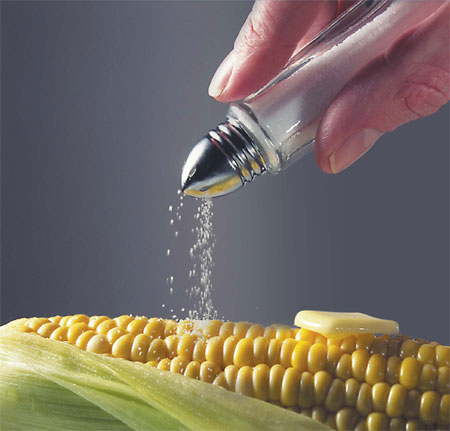
Eating an egg for breakfast in peace is not always easy given the common admonition, "Don't use so much salt!"
While high consumption of table salt has long been blamed for high blood pressure, some scientists are now not so sure.
Beyond dispute, however, is that the human body's fluid balance and absorption of nutrients depend on salt, which maintains osmotic pressure in the lining of blood vessels, explains Stephan Bischoff, a professor of nutritional medicine at Hohenheim University in Germany.
Salt thus enables the passage of nutrients into cells - and of waste out of them. It is also important in areas including the transmission of nerve impulses, muscle movement and bone density.
"Salt also causes the body to retain water," Bischoff says, pointing out that a salt deficiency could lead to dehydration.
An adult requires a daily minimum of 1.4 grams of salt to compensate for the salt lost normally by the body. Sweating or diarrhea can greatly raise the requirement. "Sweat contains between 0.8 and 1.3 grams of table salt per liter," notes Karl-Ludwig Resch, professor of physical medicine and rehabilitation at Dresden University.
Generally speaking, a person's salt intake exceeds the minimum daily requirement many times over.
Salted meat products such as sausage and salami - 100 grams of the latter contain about 3.1 grams of salt - are not the only sources. Among the saltiest foods are some varieties of cheese.

